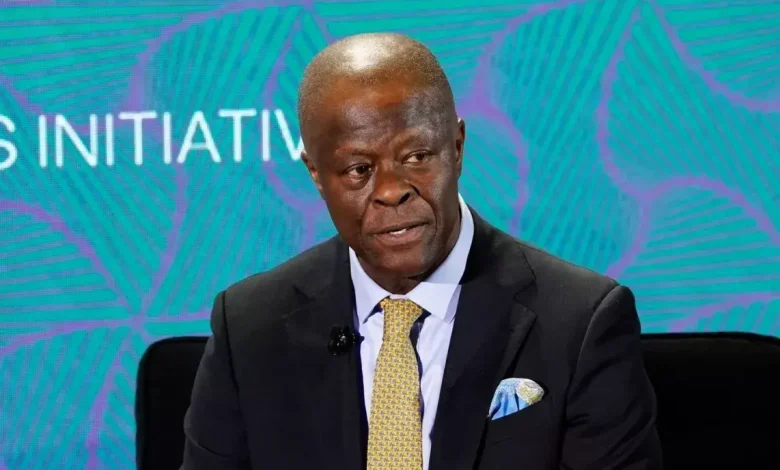
As the 2025 Spring Meetings of the International Monetary Fund (IMF) and World Bank concluded yesterday in Washington, Nigeria’s Minister of Finance and Coordinating Minister of the Economy, Wale Edun, declared the government’s renewed focus on building fiscal buffers to shield the nation from global economic shocks.
Speaking during a joint closing press briefing with the Governor of the Central Bank of Nigeria (CBN), Olayemi Cardoso, Edun outlined plans to strengthen Nigeria’s macroeconomic stability amid rising global uncertainty.
“We’ve had a very interesting and busy week at the World Bank/IMF Spring Meetings,” Edun said. “We met at a time of global uncertainty, structural shifts, rising trade and geopolitical tensions, elevated interest rates, and high debt levels, particularly among developing countries.”
Although recent global tariff hikes have limited direct effects on Nigeria, Edun explained that their indirect pressure on oil prices presents fiscal challenges for the country. “The resultant fall in oil prices impacts our fiscal estimates,” he noted, highlighting the need for strategic policy recalibration.
Edun emphasized the Tinubu administration’s commitment to food security and infrastructure-driven growth, while encouraging greater private sector participation in the economy.
“The consensus from various fora is that domestic policy must be the first line of defense. We must safeguard fiscal sustainability, build savings, and strengthen our capacity to absorb external shocks,” he said. “This requires consistent, recalibrated policies, underpinned by transparent and reliable data.”
The minister affirmed that the administration’s Renewed Hope Agenda aligns closely with the World Bank’s developmental theme: “Jobs: The Pathway to Prosperity”. He cited ongoing initiatives in agriculture, infrastructure, social welfare, and energy reforms as proof of Nigeria’s policy traction.
Edun also referenced a recent boost to investor confidence, noting that Fitch Ratings had upgraded Nigeria’s credit rating from B- to B with a positive outlook a move he described as a testament to the country’s progress on both fiscal and monetary fronts.
Adapting the Budget to New Realities
On the issue of falling oil prices and their implications for the 2025 budget, Edun reassured stakeholders that the government is not standing still.
“Budgets are statements of intent. They must be recalibrated to reflect current realities and available resources,” he said. A dedicated sub-committee within the Economic Management Team is currently modelling various economic scenarios. Their findings will shape upcoming policy decisions, which will be reviewed by the Federal Executive Council.
To boost oil output and revenue, Edun noted that the leadership of the Nigerian National Petroleum Company Limited (NNPC) has been directed to ramp up production and improve operational efficiency.
He also disclosed the rollout of a robust revenue assurance framework aimed at automating and digitizing the operations of revenue-generating agencies to ensure transparency and capture of all government income.
Shift from Foreign Debt to Domestic Revenue Drive
In a significant policy pivot, Edun announced that Nigeria is moving away from reliance on external borrowing and instead focusing on mobilizing domestic resources and private capital.
“Initially, we explored concessional funding from development partners and tapped commercial markets through Eurobonds and diaspora bonds. That phase has run its course,” he said.
The new direction, he explained, is centered on stimulating private sector-led investment in infrastructure, technology, toll roads, and other revenue-generating ventures. “The 2025 budget even includes a line for privatization,” Edun revealed, signaling the government’s readiness to open key sectors for private capital participation.
Optimism Amid Challenges
Despite the prevailing global headwinds, Edun expressed optimism about Nigeria’s economic prospects. “We’ve had encouraging conversations this week. Both at the IMF and World Bank, there’s recognition that Nigeria is on the right path,” he said.
As Nigeria returns from the global financial stage, the Minister affirmed that the country’s focus remains squarely on domestic reforms, prudent fiscal management, and building a resilient economy for inclusive growth.





